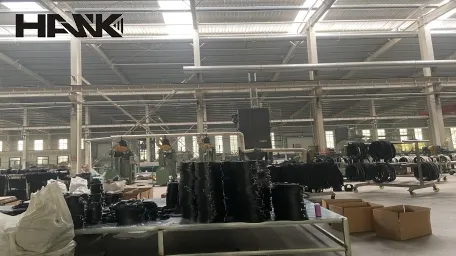- Arabic
- French
- Russian
- Spanish
- Portuguese
- Turkish
- Armenian
- English
- Albanian
- Amharic
- Azerbaijani
- Basque
- Belarusian
- Bengali
- Bosnian
- Bulgarian
- Catalan
- Cebuano
- Corsican
- Croatian
- Czech
- Danish
- Dutch
- Afrikaans
- Esperanto
- Estonian
- Finnish
- Frisian
- Galician
- Georgian
- German
- Greek
- Gujarati
- Haitian Creole
- hausa
- hawaiian
- Hebrew
- Hindi
- Miao
- Hungarian
- Icelandic
- igbo
- Indonesian
- irish
- Italian
- Japanese
- Javanese
- Kannada
- kazakh
- Khmer
- Rwandese
- Korean
- Kurdish
- Kyrgyz
- Lao
- Latin
- Latvian
- Lithuanian
- Luxembourgish
- Macedonian
- Malgashi
- Malay
- Malayalam
- Maltese
- Maori
- Marathi
- Mongolian
- Myanmar
- Nepali
- Norwegian
- Norwegian
- Occitan
- Pashto
- Persian
- Polish
- Punjabi
- Romanian
- Samoan
- Scottish Gaelic
- Serbian
- Sesotho
- Shona
- Sindhi
- Sinhala
- Slovak
- Slovenian
- Somali
- Sundanese
- Swahili
- Swedish
- Tagalog
- Tajik
- Tamil
- Tatar
- Telugu
- Thai
- Turkmen
- Ukrainian
- Urdu
- Uighur
- Uzbek
- Vietnamese
- Welsh
- Bantu
- Yiddish
- Yoruba
- Zulu
ਨਵੰ. . 07, 2024 16:53 Back to list
Steel Cord Conveyor Belts for Enhanced Strength and Durability in Material Handling
Understanding Steel Cord Conveyor Belts
Conveyor belts are essential components in various industries, playing a crucial role in the transportation of materials. Among the different types of conveyor belts, steel cord conveyor belts are notable for their strength and durability. This article explores the construction, advantages, applications, and maintenance of steel cord conveyor belts.
What Are Steel Cord Conveyor Belts?
Steel cord conveyor belts are designed with a core made up of steel wires embedded in a rubber matrix. These cords provide immense tensile strength, making these belts suitable for the most demanding industrial applications. The steel wires are typically arranged in pairs or groups and are covered with layers of rubber, which protect the steel from corrosion and mechanical damage. This construction allows steel cord conveyor belts to carry heavy loads over long distances, even in harsh working conditions.
Advantages of Steel Cord Conveyor Belts
1. High Tensile Strength The primary advantage of steel cord conveyor belts is their high tensile strength. This allows them to transport heavy loads without sagging or breaking, making them ideal for industries like mining, cement, and metals.
2. Long-Distance Transportation Steel cord belts can effectively transport materials over long distances, reducing the number of transfer points and consequently minimizing material handling costs.
3. Resistance to Environmental Factors These belts exhibit excellent resistance to heat, moisture, and chemical exposure. The protective rubber covering ensures that the steel cords do not corrode, thus extending the lifespan of the belt.
4. Reduced Stretch Steel cord conveyor belts are designed to have minimal elongation under load. This reduces the need for frequent belt adjustments and enhances operational efficiency.
5. Improved Safety With their robust construction and reliability, steel cord belts reduce the chances of belt failure, thereby enhancing workplace safety. This is particularly important in industries where downtime and accidents can lead to significant financial losses.
Applications of Steel Cord Conveyor Belts
Steel cord conveyor belts are utilized across various sectors due to their outstanding performance characteristics
- Mining and Quarrying These belts are integral to transporting large volumes of minerals and aggregates from mines to processing facilities.
steel cord conveyor belt

- Cement Production In cement plants, steel cord belts move raw materials such as limestone, clay, and gypsum efficiently through various stages of production.
- Steel and Metal Industries These conveyors are used to transport heavy materials like slabs, coils, and structural components, where strength and durability are crucial.
- Power Plants They are employed in the handling of coal and other bulk materials in power generation facilities.
- Ports and Shipping In maritime operations, steel cord belts facilitate the movement of bulk cargo, enhancing loading and unloading efficiencies.
Maintenance of Steel Cord Conveyor Belts
Maintaining steel cord conveyor belts is vital for ensuring their longevity and optimal performance. Here are some key maintenance practices
1. Regular Inspections Operators should conduct routine inspections to identify signs of wear, damage, or misalignment. Early detection can prevent costly breakdowns.
2. Proper Cleaning Keeping the belts clean of debris and material buildup is essential. Accumulated material can lead to belt damage and affect operational efficiency.
3. Tension Adjustment Maintaining the correct tension in the belt is critical to prevent slipping or excessive wear. Operators should follow the manufacturer’s specifications for tensioning.
4. Protection Against Environmental Factors While steel cord belts are resistant to many environmental factors, regular checks for the integrity of the rubber covering can prevent corrosion of the steel cord beneath.
5. Professional Servicing Engaging professional services for maintenance and repair tasks ensures that any issues are addressed correctly, extending the life and performance of the conveyor belts.
Conclusion
Steel cord conveyor belts are an indispensable asset in modern industrial operations, thanks to their strength, durability, and adaptability. By understanding their construction, advantages, and maintenance requirements, industries can optimize their material handling processes and ensure operational efficiency. Investing in high-quality steel cord conveyor belts can lead to a significant return on investment by enhancing productivity and reducing long-term costs.
-
Korean Auto Parts Timing Belt 24312-37500 For Hyundai/Kia
NewsMar.07,2025
-
7PK2300 90916-T2024 RIBBED BELT POLY V BELT PK BELT
NewsMar.07,2025
-
Chinese Auto Belt Factory 310-2M-22 For BMW/Mercedes-Benz
NewsMar.07,2025
-
Chinese Auto Belt Factory 310-2M-22 For BMW/Mercedes-Benz
NewsMar.07,2025
-
90916-02660 PK Belt 6PK1680 For Toyota
NewsMar.07,2025
-
drive belt serpentine belt
NewsMar.07,2025

